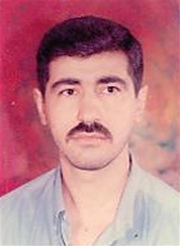Calling Reuters' bluff
Reuters says that its suspicious habit of turning up right on time at the scenes of terrorist attacks in Iraq is nothing more than "quick response to news events." The U.S. military has suspected for some time that some Reuters employees have blurred the lines between reporting and participation. Now cameraman Ali Omar Abrahem al-Mashhadani has been detained and sent to Abu Ghraib, and Reuters wants to know why. I think they should be cautious about this one, however: they may not want the rest of us to know why.

Jimmy Olsen? Or embedded with the enemy?
Coalition forces appear more confident about probable cause in Mashhadani's case than they were in the case of three Reuters workers picked up for arriving too swiftly on the scene of a helicopter downing last year. They were released without charge after three days. Mashhadani appears to be in somewhat hotter water:
The U.S. has declined to explain what exactly got the cameraman in trouble, but his family says it apparently relates to his profession:
Reuters typically omits an important qualifier in this last statement in a baldfaced attempt to exonerate Mashhadani before he's even been charged. It should probably read: "Nothing in his work submitted to Reuters ..." or "Nothing in his work as an official Reuters cameraman ..."
Reuters has acted as cheerleader for terrorists in Iraq since the invasion. Their coverage of Iraqi opinion on the U.S. occupation has been consistently slanted against what polls reveal about what Iraqis think, making them appear more of a mouthpiece for Zarqawi than an objective news service.
It would come as no surprise to find that their cameraman felt it convenient to become "embedded" in a terrorist cell. I can hardly wait to know what was on Mashhadani's tapes and computer, and to see how fast Reuters spikes the story should guilt become evident.
If Mashhadani is exonerated, I will report it immediately. If he is found to have aided and abbeted terrorism, will Reuters do the same?

Jimmy Olsen? Or embedded with the enemy?
Coalition forces appear more confident about probable cause in Mashhadani's case than they were in the case of three Reuters workers picked up for arriving too swiftly on the scene of a helicopter downing last year. They were released without charge after three days. Mashhadani appears to be in somewhat hotter water:
Lieutenant Colonel Guy Rudisill, spokesman for U.S. detainee operations in Iraq, said the journalist was now in Baghdad's Abu Ghraib prison: "He will not be able to have visitors for the next 60 days," he added.
The U.S. has declined to explain what exactly got the cameraman in trouble, but his family says it apparently relates to his profession:
An account from Mashhadani's family of his arrest on August 8 suggests that images found by U.S. Marines on his cameras during a general sweep in the neighborhood prompted his detention.
Relatives said that Marines conducting a routine search of the house turned hostile after viewing images stored on Mashhadani's video and stills cameras and his desktop computer.
Reuters has provided the U.S. military with published work by Mashhadani that shows scenes of conflict and gunmen operating in plain view of civilians. Nothing in his work has indicated activity incompatible with his status as an independent journalist.
Reuters typically omits an important qualifier in this last statement in a baldfaced attempt to exonerate Mashhadani before he's even been charged. It should probably read: "Nothing in his work submitted to Reuters ..." or "Nothing in his work as an official Reuters cameraman ..."
Reuters has acted as cheerleader for terrorists in Iraq since the invasion. Their coverage of Iraqi opinion on the U.S. occupation has been consistently slanted against what polls reveal about what Iraqis think, making them appear more of a mouthpiece for Zarqawi than an objective news service.
It would come as no surprise to find that their cameraman felt it convenient to become "embedded" in a terrorist cell. I can hardly wait to know what was on Mashhadani's tapes and computer, and to see how fast Reuters spikes the story should guilt become evident.
If Mashhadani is exonerated, I will report it immediately. If he is found to have aided and abbeted terrorism, will Reuters do the same?

0 Comments:
Post a Comment
<< Home